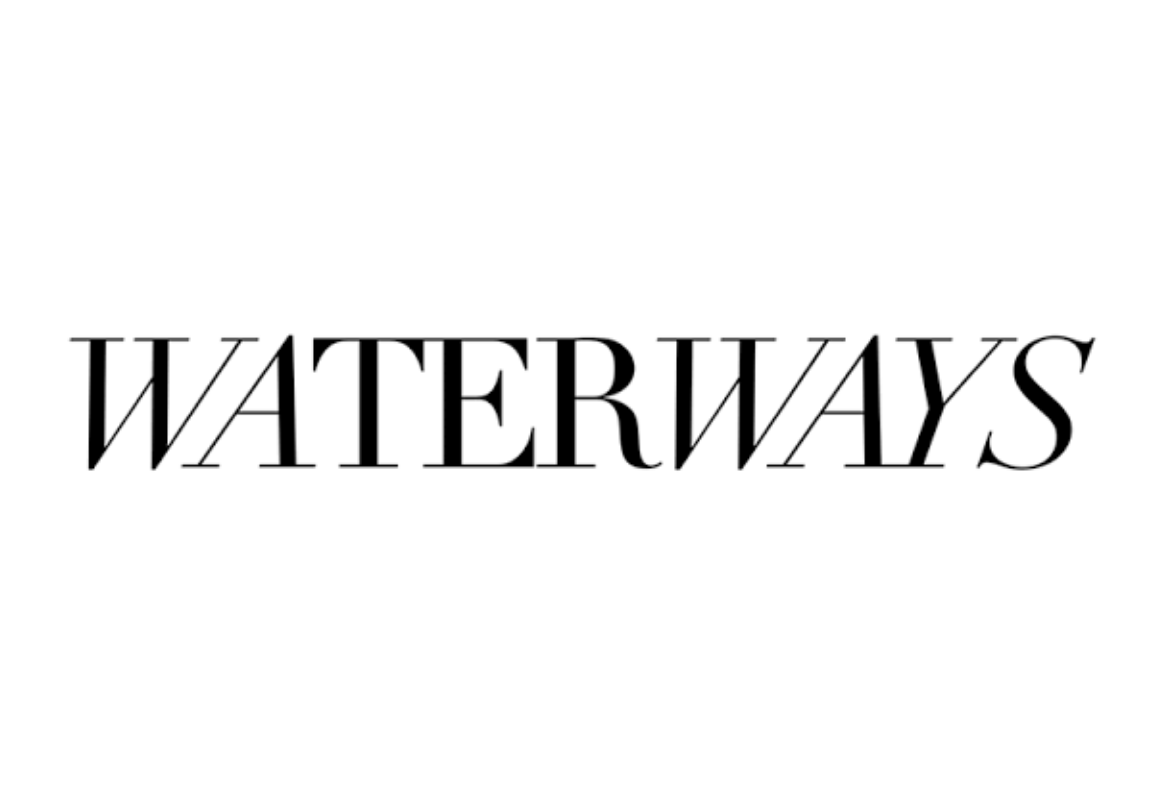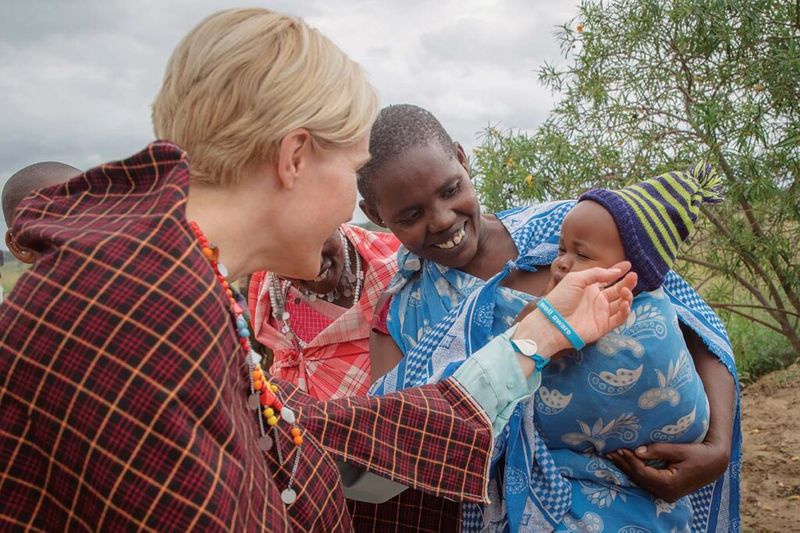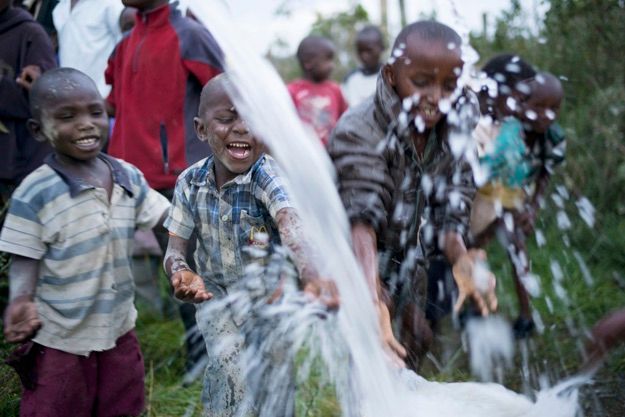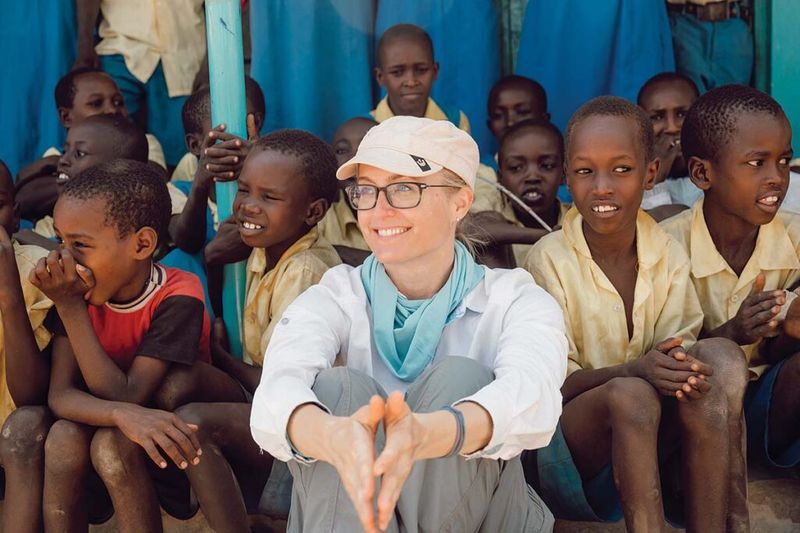February 9, 2021
Water for Africa: One Austinite is a Heroine to Water-Starved Kenyans
Sarah Evans never imagined she would travel to Kenya, much less work there. The country first hit her radar in 2008, when a friend who had come to Austin from Kenya asked Evans to help her raise money to replace dying livestock in her family’s village.
Evans soon found out, however, that the issue wasn’t so straight-forward. “The more I learned about the problems there, the more I realized that replacing the cattle and goats would only be a short-term solution because there wasn’t a reliable source of water there to keep them alive,” she says.
As she looked deeper into the dilemma, she discovered that people throughout East Africa suffered from a lack of clean water. With that understanding, she pushed to shift the focus of the fundraising project to drilling a well for the community. This led to Well Aware, the nonprofit she established.
It’s been a success on a continent with too few success stories. Once they had raised enough funds in 2010, Evans and her friend traveled to Kenya to install the well. Once it was completed and functioning, Evans witnessed the profound and transformative impact this new source of water brought to the village. But along with that success came a troubling realization about the overall problem of bringing clean water to impoverished rural areas. Most of the water projects implemented in rural Kenya—and communities throughout the developing world—do not function properly or at all.
Evans was determined to change that. “It really wasn’t until we traveled to Kenya to oversee the well construction that I knew I wanted to devote my career to this work,” she says.
Back in Austin, she set about growing Well Aware so that more wells could be built for other communities in Kenya. She also tackled the problem of so many water projects breaking down or not working properly with no follow-up to fix them. So, besides drilling new wells, her team repaired existing ones.
“The failure rates of water systems in the rural, developing world are abysmal,” Evans says. “Only about forty percent of these systems end up working at all. That doesn’t even take into account the large percentage of functioning systems that are drawing water that isn’t safe to drink.”
The current model is broken, she surmised, because it celebrates success as soon as infrastructure is added. Yet there is no accountability—no plan to measure success by continually monitoring results over time.
“It’s insulting and often even more devastating to communities to receive this paternalistic aid without consideration or accountability for what is really happening a year after the aid intervention,” she says. “It’s unacceptable and an insulting waste of resources. It just doesn’t have to be this way, and I want to change it. That’s what keeps me devoted to my work.”
After a few years, Evans expanded to create Well Beyond, which provides technical and community expertise and patent-pending software to other organizations looking to implement clean-water solutions.
She says that as long as failure rates are swept under the rug, governments and nonprofits don’t feel obliged to rebuild water infrastructure. “But the systems must be rebuilt if we are to create sustainable water projects as we all say we are.”
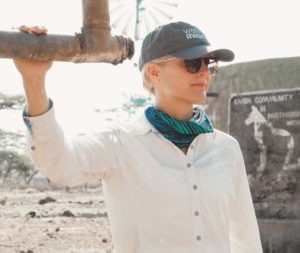 Now serving as CEO of Well Beyond and founder and board chairperson for Well Aware, her current focus is on further developing the WellBeyond app, a diagnostic tool that works without internet access and provides remote chat support to allow community infrastructure operators to maintain and repair their water systems. It has especially been a game-changer in the era of COVID-19, providing WASH (Water and Sanitation and Hygiene) training in these communities to help protect them from the spread of coronavirus, even among the most vulnerable populations.
Now serving as CEO of Well Beyond and founder and board chairperson for Well Aware, her current focus is on further developing the WellBeyond app, a diagnostic tool that works without internet access and provides remote chat support to allow community infrastructure operators to maintain and repair their water systems. It has especially been a game-changer in the era of COVID-19, providing WASH (Water and Sanitation and Hygiene) training in these communities to help protect them from the spread of coronavirus, even among the most vulnerable populations.
She says that the most rewarding aspect of her work is seeing the evolution and growth of the communities where her nonprofits have worked over the years.
“It’s watching a community that was struggling to simply survive turn around and grow into a thriving community. And witnessing schools being built and gardens growing in areas that were formerly war-torn or battling over resources. Mostly, it’s getting to see the people in these amazing communities being given the respect and ownership they deserve to drive their own success, as they should.”
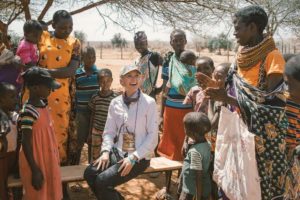 Being a woman in the male-dominated world of infrastructure development doesn’t faze Evans, who is inspired by the women who have paved the way for her. She thinks a lot about Jane Goodall, who has worked extensively in neighboring Tanzania.
Being a woman in the male-dominated world of infrastructure development doesn’t faze Evans, who is inspired by the women who have paved the way for her. She thinks a lot about Jane Goodall, who has worked extensively in neighboring Tanzania.
“It’s tough enough [for anyone] trying to disrupt an industry these days, and I know the road was much harder for women decades ago taking on similar, seemingly insurmountable broken systems,” she says. “I’m deeply grateful for their tenacity and example. Jane Goodall broke through many barriers and stereotypes at a very early age to end up making phenomenal progress for her cause—with a gentle but commanding leadership and without ever compromising her character. I try to be like her. I don’t always succeed, but I’m always trying.”
